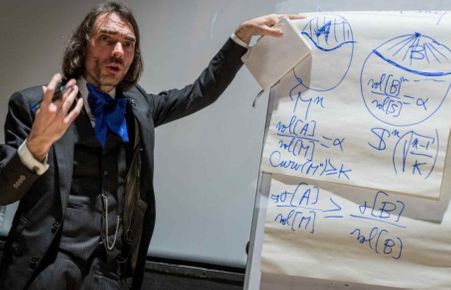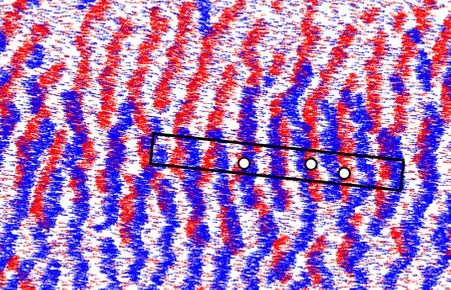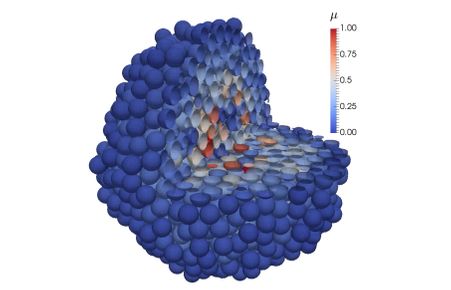The Abraham de Moivre International Research Laboratory (IRL) -- previously called UMI Abraham de Moivre -- is a joint laboratory between CNRS and Imperial College London, establishing a long-term partnership which serves as a hub for collaborations between the French and UK mathematics communities.
Foundations and aims of the UMI Abraham de Moivre
The collaboration was started a few years ago by the establishment of the ICL-CNRS Fellowships in Mathematics, jointly funded by Imperial's Department of Mathematics and the Mathematics Institute INSMI of CNRS, supporting extended stays of French academics at Imperial. The UMI Abraham de Moivre laboratory enhances the ICL-CNRS Fellowships programme by opening new opportunities for Imperial academics to make extended stays in French labs and facilitate the organisation of joint networks, workshops and conferences. The scientific span of the UMI Abraham de Moivre concerns all domains of mathematics and of their interactions with other fields, such as physics, computer science, biology, economics, social sciences.
The UMI Abraham de Moivre is located within Imperial's Department of Mathematics in London, which is one of the most prominent Mathematics Departments in the UK. Imperial College is among the top five universities in STEM (Science, Technology, Engineering and Mathematics) in the UK and ranks within the top universities in all worldwide rankings. The name of the UMI is a tribute to French Mathematician Abraham de Moivre who was instrumental in the development of geometry and probability theory. De Moivre established himself in London following the revoking of the Edict of Nantes and became a member of the Royal Society and part of the English scientific establishmen, which at that time included Isaac Newton and Edmund Halley among others.
New Frontiers in Mathematics
An inauguration event, 'New Frontiers in Mathematics', took place in January 2018.


